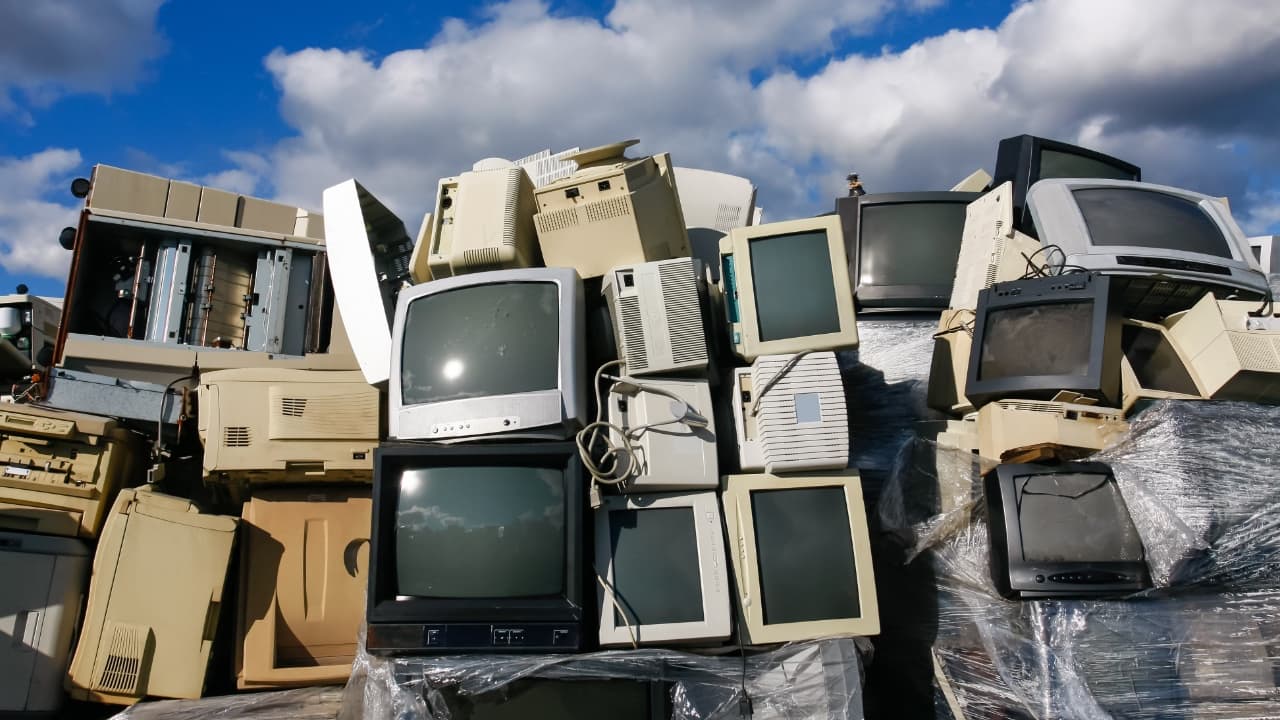
We all know that computers don't last very long. But what happens when all the tech in our lives starts to become obsolescent just as quick?
Modern cameras - mirrorless ones, for example, look pretty much like their older, purely mechanical film-based forebears. Give or take a few menus and specialist buttons, and your grandparents (if they were photographers) would have little trouble operating a contemporary camera. Similarly, if the last car you drove (before hibernating for sixty years) was a Morris Minor, then it might only take ten minutes of orientation to drive a Tesla competently.
That's not surprising. Cameras need a lens at the front, and there was no compelling reason to change the basic shape just because modern technology has moved it. With cars: why change the fundamental controls? It's still the same mode of transport, even if it is electric.
All of this demonstrates an insidious side to modern technology that is completely misaligned with the laudable and necessary effort to improve sustainability. It's pretty hard to explain this: it crops up in various forms, and the essence of it is that what used to be simply physical objects or devices are now - essentially - computers. Cars are smartphones on wheels. Cameras contain digital signal processing and, increasingly, network connections. Simple loudspeakers are not simple but have advanced processing and connectivity - see our review of the Sonos Era 300.
As a massive fan of technology, I love all this, but it would be remiss not to acknowledge the downsides. Here's the thing:
A spreading problem
We all know that computers don't last very long. Before I moved to Apple laptops, I was accustomed to my mobile computing devices flaking out after three years or so. They last a bit longer now because solid-state memory lasts longer than fragile disk drives. LED-backlit screens are more durable than the previous fluorescent ones. And the race for ever more RAM and processing speed seems to have given way to parallelism and increasingly capable GPUs, so that you can reasonably expect a three-year-old computer to run most of your software. But, eventually you'll find you can't load the latest OS updates on your ageing laptop; at this point, you'll be frozen in time, unable to use modern applications, and with an increasing lack of security protection.
None of this should surprise anyone who's worked with computers in the last three decades. You're not going to be able to run Ableton Live on a fossilised computer that barely had the stamina to boot up even when it was new. But if that's a widely accepted state of affairs with computers, what should we regard as normal when almost everything is a computer?
With consumer and professional electronics, we're probably already there. It's getting hard to identify any consumer device without firmware—unless it's furniture or a kitchen utensil. Virtually everything that has software will need upgrading.
I mentioned Sonos earlier. The company makes some fantastic products to replace conventional HiFi systems and connects them wirelessly to each other, as well as a plethora of streaming services. As consumer products, the speakers have to be easy to set up and use, and the company has mostly achieved this. But there's trouble brewing. It's nothing to do with the products directly or the company. The same issue will hit Tesla and any customers of a massive number of complex software/hardware devices. It's software obsolescence.
You can't describe a wireless speaker, an electric car, or a modern camera as a simple piece of hardware running software. Take a smartphone, for example. Functionally, you could simplify it to a microphone, speaker, camera, screen and wireless modem, but the reality is that they are much more than that. Remember that a smartphone is now - literally - as powerful as a modern laptop: the latest iPad Pro, arguably a large smartphone without a phone, currently sports the most modern and powerful processor in Apple's entire range - including its laptops. Within a smartphone is a complex software architecture whose block diagram would look like a medium-sized city. Take an exploded view of the phone. You'll see what's called the "technology stack", which goes all the way from the hardware through low-level software, an entire operating system, management software that looks after security and even things like thermal and power management, and of course, the application software that presents itself to you as a user interface.
An electric car has comparable levels of complexity, especially when it comes to autonomous driving. Such a vast suite of software is never going to be perfect - especially in the early versions. So it will get updated. Manufacturers will add new features. In-car entertainment systems will offer new services. If a device maker thinks it can extend a product's commercial life, it might force significant upgrades on you. Almost inevitably, you'll reach a point where your prized possessions are too old to maintain or support. So what happens next?
The cycle of doom
With computers, we're used to this cycle of doom. We accept it. It's the price of progress. But what happens when it threatens our favourite possessions? Those speakers we spent £1,000 on five years ago? Our seven-year-old electric car? And our favourite camera? Especially in five or ten years when they're all infused with AI—which, inevitably, will come as a service.
I'm not saying all of this is bad. We can enjoy progress while being wary of it. But we urgently need a plan to deal with obsolescence. I've had conversations with quite a few people lately along the lines of, "I'm still using my ten-year-old camera. It's as good as it ever was, and I don't need anything better". Of course, a ten-year-old camera probably wasn't connected to the Internet and most likely had nothing to do with AI. But what happens in ten years from now? Are we going to have to throw everything away?
Tags: Technology


Comments